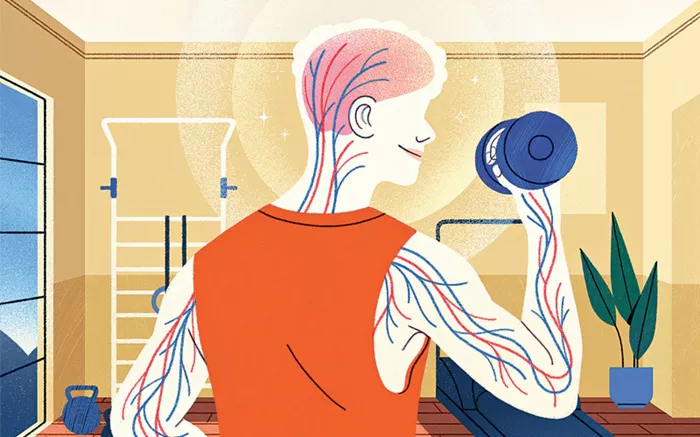Many people experience a mental uplift after physical activity, and recent scientific research explains why. Beyond well-known physical benefits like reduced blood pressure and disease risk, exercise triggers the release of “hope molecules”—biological messengers that improve mental health.
The Science Behind “Hope Molecules”
When muscles contract during exercise, they release proteins called myokines into the bloodstream. These myokines cross the blood-brain barrier and act as natural antidepressants by enhancing mood, learning ability, and brain protection against aging. This process, known as “muscle-brain cross-talk,” helps explain the mental boost felt after exercise.
Exercise as a Treatment for Depression
A major study found that exercise significantly reduces depressive symptoms, supporting its use as an effective treatment for depression. This evidence has encouraged healthcare providers to recommend “social prescriptions,” such as outdoor activities and community engagement, alongside traditional medical care.
Benefits for Youth Mental Health
Physical activity also strongly benefits children and young adults. Research from Norway shows that teenagers involved in team sports report higher self-esteem and life satisfaction, especially among senior high-school girls. Similarly, university students who are inactive face increased risks of poor mental health and self-harm.
Activating Hope Molecules for Well-Being
Hope molecules can be stimulated through various physical activities like running, swimming, and dancing. Additionally, enjoyable pursuits such as painting, listening to music, and meditation, as well as social connections and self-care, boost these molecules, fostering resilience and positivity.
Prioritize Movement for Mental Wellness
Instead of turning to passive distractions when feeling down, engaging in physical activity offers a powerful remedy. Whether it’s joining a sports team, walking, or attending a yoga class, exercise not only strengthens the body but also nurtures hope and mental health.
In summary: Exercise releases “hope molecules” that act as natural antidepressants, making physical activity a vital tool for improving mental well-being across all ages.
YOU MAY ALSO LIKE:
- Young Adult Cancer Survivors Face Lifelong Mental Health Challenges
- Higher McCance Brain Care Score Cuts Stroke Risk in Women, Study Finds
- Do TikTok Life Hacks Truly Improve Mental Health?


